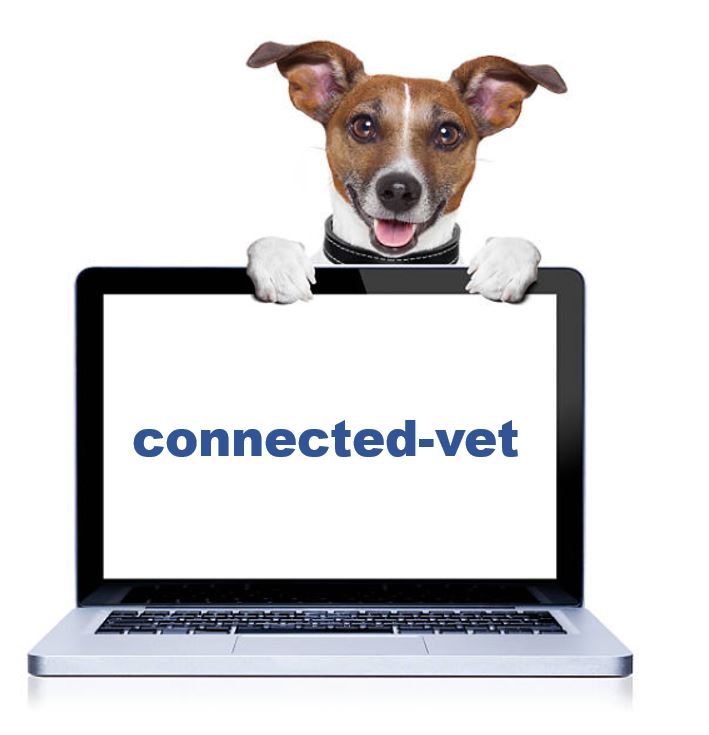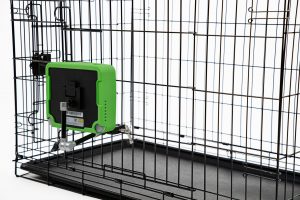Boston isn’t exactly known as a dog-friendly city. There might be some green space to walk your pups, such as the Boston Public Garden or the Esplanade, but finding apartments in the city that allow dogs can be “ruff.”
In 2021, Wallethub ranked Boston as just the 67th most dog-friendly city in America out of 100. Despite the poor grade, there’s something of a pet industry cluster forming here.
Not only does the Boston-area have key pet-industry players like Chewy, Embark Veterinary and Well-Pet in Tewksbury (the “Top Dogs,” if you will), the region also has a number of innovative startups like PetPocketBook and Awayte Inc. Why are entrepreneurs bringing their pet companies to Boston? And what makes Boston an ideal place for pet innovation? Two industry experts, Ryan Boyko, founder and CEO of Embark Veterinary, and Reed Howlett, CEO of Well-Pet, talked to BostInno to help shed light on the sector’s presence in Boston.
« The industry has never been healthier, » said Howlett.
The American Pet Products Association says $103.6 billion was spent on pets in the U.S. last year. And Howlett said the food and treats portion of that is an over $40 billion category, which is growing in the eight to 10 percent range year over year. It’s driven by two factors, he said. « You have many more pets that have been adopted into homes now during the course of COVID … all those new pets in homes … are driving growth. Secondly, you’re seeing a lot of growth in the category through treating as people are home more and they’re with their pets. They’re certainly treating for reward and health purposes…but also for purposes of health. »
WellPet sells treats called Whimzees that target dental health, and Howlett said sales have grown 60 percent due to increased awareness around pet health.
Shelter Animals Count, a nonprofit that provides statistics about sheltered animals, found that in 2020 there were 26,000 more pet adoptions than in 2019. Ryan Boyko, founder and CEO of Embark Veterinary, thinks that some of the adoption statistics have been misconstrued.
“The percent of households that own pets, the percent of households that own dogs are increasing, » Boyko said. « And the pandemic kind of picked up steam on that a little bit, but not as much as I think the social consciousness made it sound like. It definitely drastically increased demand for dogs, but the supply is not infinitely elastic. And if you look at the whole year of 2020, there wasn’t actually an increase, or any substantial increase in the number of dogs adopted, because they ran out of dogs from the shelter and fewer people surrendered dogs — only half as many people surrendered dogs in 2020 as normal. So, it was a supply problem, not a demand problem.”
However you construe the numbers, it’s clear that the pet industry is growing. Boyko said the pet-focused companies in Boston run the gamut across categories.
« There is some great innovation happening, » Boyko said. « One of the really cool things is, I think we were relatively early on in the trend, but what you’re seeing now is a lot more pet-focused startups, and several of them in the health space, not just in the luxury goods space. And more investors are paying attention to the space, which I think is a very hopeful sign for innovation that extends dog lives. »
The Embark CEO, who moved the company from Austin, Texas to Boston in 2017, said Boston is an ideal place for pet entrepreneurs for the same reason as startups in so many other fields find themselves here: the university presence, a talented workforce, collaboration with biotech companies, and a strong core of investors.
“Certainly there are other places, most notably in California, where you can also get that, but Boston has a thriving VC scene. And what I like about it is I think they’re more focused on creating strong, sustainable businesses than the stereotypical California VC, where they’re looking to invest tons of money and hope to get a couple of home runs from that, » Boyko said.
What about the role that younger pet consumers will play in the market in the future? They’re the « growth engine » for the industry, according to Howlett.
« If you look out to 2025, what you’ll find is that over 60 percent of the category on food and treats is going to be accounted for by really millennial, or Gen Z consumers. And so those two cohorts are really going to come to dominate the way that pet food is marketed and developed. And certainly the channels through which it’s sold by and to that group obviously are highly, highly tech oriented, highly social and digitally conscious,” he said.
With the combination of an innovative economy, talented workforce, opportunity for collaboration, investors and younger consumers, it’s no surprise that Boston is creating a growing, sustainable pet cluster.
Lire la suite: www.bizjournals.com






